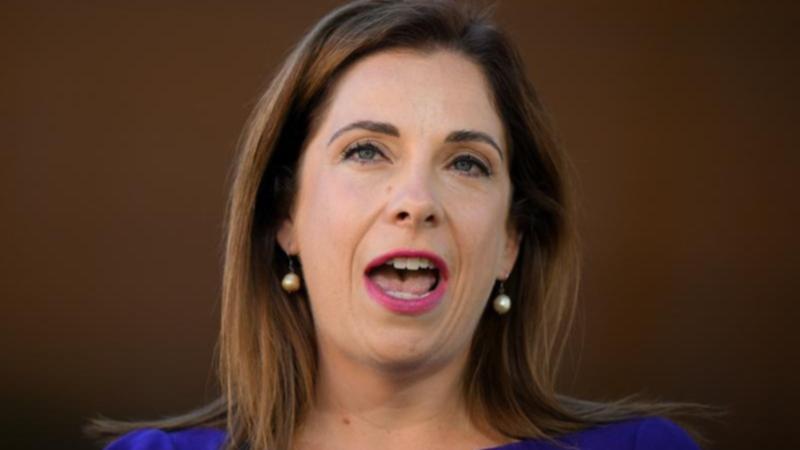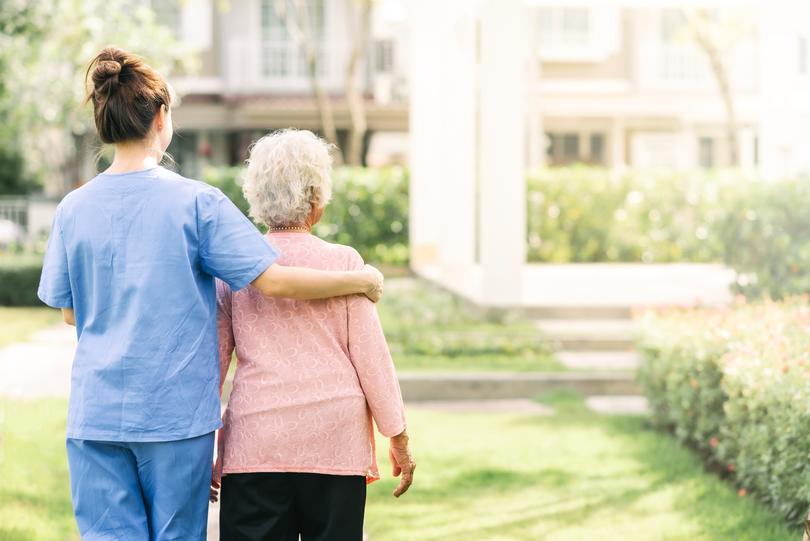Aged Care Minister Anika Wells says industry shake up will see ‘wealthy’ boomers slugged more
EXPLAINER: Wealthy older Australians could be asked to pay significantly more for aged care as the government tries to rein in growing costs.

Wealthy older Australians could be asked to pay $5400 a year more for residential aged care and to contribute more for services used in home care under a funding revamp intended to make the growing costs more manageable.
But the government has ruled out any new Medicare levy-style tax on all Australians to cover the costs.
Demand for aged care is expected to grow enormously, with the population aged over 80 expected to triple over the next 40 years.
Sign up to The Nightly's newsletters.
Get the first look at the digital newspaper, curated daily stories and breaking headlines delivered to your inbox.
By continuing you agree to our Terms and Privacy Policy.These older Australians are expected to be wealthier in retirement than previous generations while at the same time, the proportion of working-age people paying taxes will shrink.
An expert taskforce led by Aged Care Minister Anika Wells spent six months examining funding arrangements and handed its recommendations to the Government at the end of December.
However, the Government is still considering how to act on them and may not have a response ready by the time of May’s budget.
Nevertheless, Ms Wells said it was clear work to put the sector on a sustainable footing must start now.
“Australia’s aged care system is under stress. There is universal acceptance that something must change in order to ensure all Australians can age with the dignity, safety and high-quality care they deserve,” she said.
“All of us have a stake in a sustainable, high-quality and dignified aged care sector – whether it’s for our parents, ageing loved ones, or even eventually for ourselves.”

The report identifies four key problems: increased demand, high expectations for care, the need for extra funding in a sector with poor financial availability, and demographic changes.
It says the government should continue to be the major funder of aged care but focus on paying for care services while individuals contribute to accommodation and everyday living costs.
“It is appropriate older people make a fair co-contribution to the cost of their aged care based on their means,” the report recommends.
It also emphasises that the existing safety net supporting people unable to pay must remain and that the rules should not change for people already in the system.
At the moment, people using home care are charged a flat fee no matter how many services they use.
The government contributes about 95 per cent of total funding, compared with 75 per cent for the cost of residential aged care.
The taskforce said this was “not an optimal or fair mix” and the proportions of co-contributions should be more consistent between the two types of care for those who can afford to pay.
“At just 5 per cent of total funding, current participant co-contribution rates in home care … are extremely low and will not support the projected growth in demand,” it said.
It recommends moving to a fee-for-service basis where people pay a co-contribution only for the services they use.
The proportion paid by individuals would be higher for everyday living services, such as house cleaning, and lower for clinical supports such as nursing, with a clearly defined list of inclusions and exclusions.
The taskforce said this would give people a price signal that better reflected what they would pay to live in their own homes regardless of age.
In residential aged care, everyone regardless of means currently pays a basic daily fee that is pegged at 85 per cent of the age pension ($61 a day at the moment).
The government has funded a separate “hotelling” payment since mid-2023 of $11 per resident per day, intended to boost the amount providers can spend on everyday living expenses such as catering and cleaning.
But providers are losing an average of $4 a day – $1460 a year – per person on daily living expenses with little scope to raise more money.
The taskforce says funding for daily living must cover the full cost of providing these services, with the supplement payment increased to cover the gap and those who can afford to pay some or all of it should do so.
For accommodation costs, the taskforce says providers should move to a model akin to renting for all residents.
People who pay an up-front lump sum – known as a refundable accommodation deposit, or RAD – should have a capped accommodation fee deducted from it, with the remainder still returned when the person leaves care.
The taskforce agreed with the royal commission recommendation that the RAD model be phased out entirely, but said this should not happen until 2035 and only after a separate independent review in 2030.
Originally published on The Nightly

